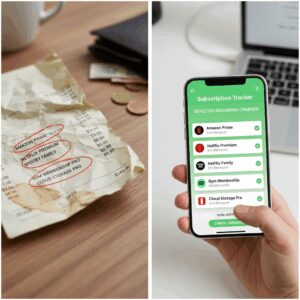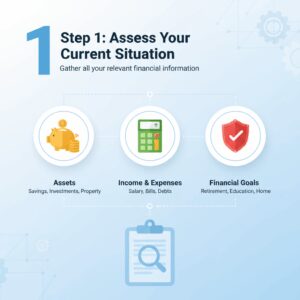Using a Personal Loan for Career Growth: When It Makes Sense (and When It Doesn’t)

When people think of personal loans, they often picture paying off debt, covering medical bills, or financing a major purchase. But increasingly, borrowers are exploring a different angle: using personal loans to invest in their careers. From funding certifications to buying equipment for a side hustle, loans can provide the capital needed to move up the professional ladder.
But is it a smart move? The answer depends on timing, strategy, and risk tolerance.
When It Makes Sense
1. Education and Certifications
Not all valuable career training is covered by federal student loans. Specialized certifications in areas like project management, IT security, or data analytics can cost thousands of dollars. If you’re confident these credentials will significantly increase your earning potential, a personal loan can act as an investment in your future.
Example: A $5,000 certification that boosts your annual salary by $10,000 pays for itself quickly, even after interest.
2. Starting or Scaling a Side Hustle
For those launching freelance businesses, the upfront costs—laptops, software, marketing—can be a barrier. A personal loan can bridge that gap, giving you the tools to earn income sooner.
Example: A freelance graphic designer might take out a $3,000 loan to purchase a high-performance computer and design software. If it allows them to take on more clients immediately, the return can outweigh the cost of borrowing.
3. Relocation for Work
Sometimes the perfect job opportunity is in another city or state. Relocation costs can be steep, especially if your new employer doesn’t cover them. A personal loan can help you seize opportunities that would otherwise be out of reach.
When It Doesn’t Make Sense
1. Unclear ROI
If you’re unsure whether the expense will translate into higher income or better opportunities, taking on debt is risky. Borrowing for vague “career development” without a clear plan can leave you with bills but no added value.
2. Luxury Expenses in Disguise
It’s easy to justify non-essentials as “career investments.” A $2,000 wardrobe upgrade or the latest phone might feel important, but unless these directly impact your income, they don’t justify a loan.
3. Already Struggling with Debt
If you’re carrying high-interest credit card balances or other personal loans, adding another loan for career growth may dig a deeper hole. In these cases, focus on reducing existing debt before borrowing more.
Alternatives to Loans
Before taking out a personal loan, consider lower-cost alternatives:
- Employer Sponsorship: Many companies reimburse for education or training. Ask before paying out of pocket.
- Scholarships and Grants: Professional organizations often provide financial aid for certifications.
- Income-Sharing Agreements (ISAs): Some programs allow you to pay tuition after you land a higher-paying job, reducing upfront costs.
- Savings Plan: Delaying your purchase or training until you’ve saved can prevent unnecessary debt.
How to Borrow Wisely
If you decide a personal loan is the right move, keep these tips in mind:
- Compare Interest Rates: Use prequalification tools to shop for the lowest rates.
- Borrow Only What You Need: Don’t be tempted by larger loan offers.
- Calculate ROI: Weigh the total repayment against your expected income boost.
- Have a Backup Plan: If your career plans change, make sure you can still comfortably repay the loan.
Personal loans can be powerful tools for career growth when used strategically. Funding certifications, relocation, or business tools can yield long-term returns far greater than the cost of borrowing. But they can also become a trap if used for vague goals or lifestyle expenses disguised as “investments.”
The key is to treat a personal loan as you would any financial decision: run the numbers, consider the risks, and be clear on the payoff. Career growth is worth investing in—but not at the expense of your financial stability.
Unlock Full Article
Watch a quick video to get instant access.









